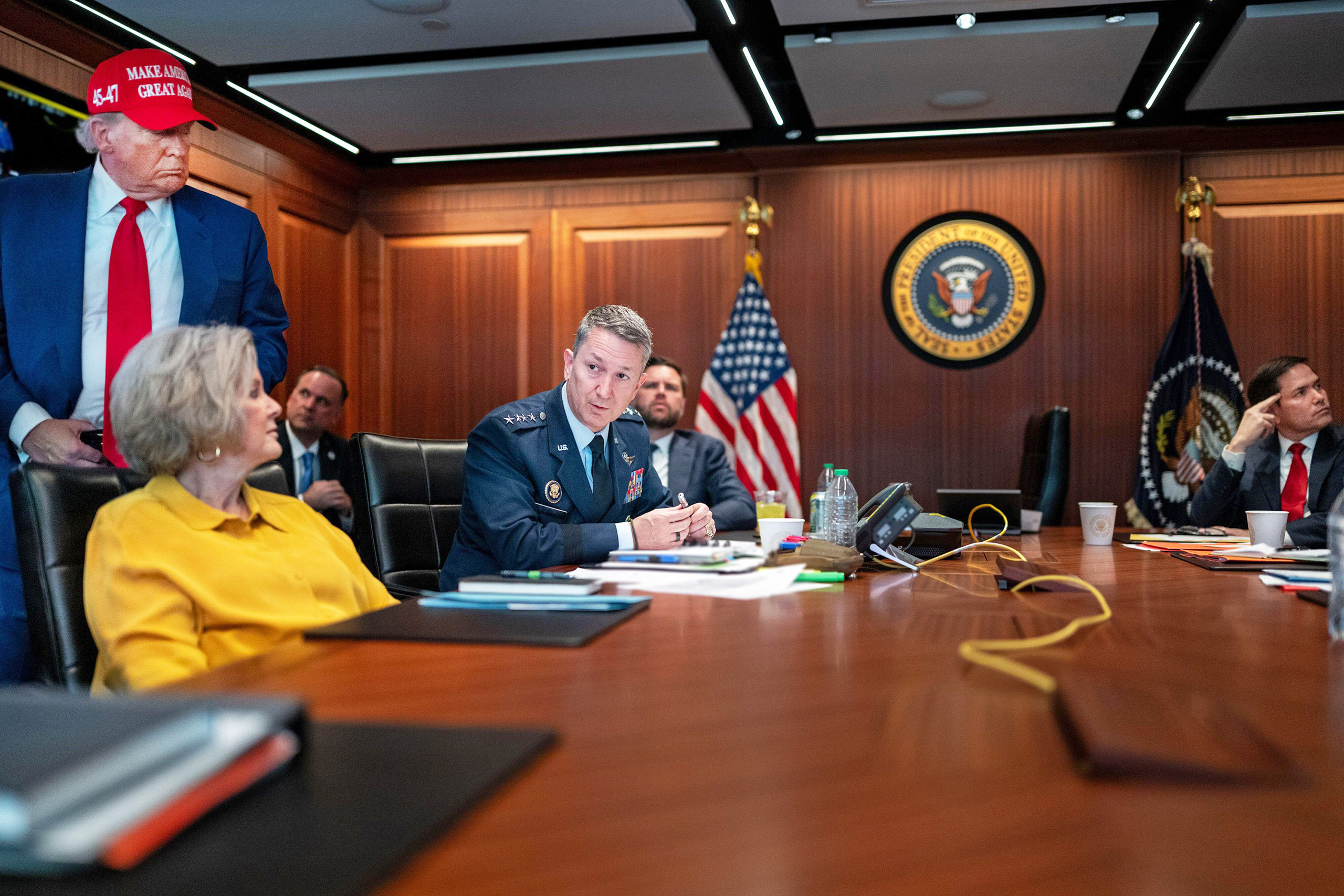Australia’s government and opposition stand in different places on the United States’ attack on Iran. The Albanese government’s first response was to call for “de-escalation, dialogue and diplomacy.” The Coalition expressed full support for Donald Trump’s bombing raids.
Labor and the Coalition agree on the potential threat of Iran’s nuclear program. It’s the danger of Donald Trump where the split opens.
For nearly eighty-five years, when the United States swung the hammer, Australia was willing to hold the nail. The Coalition sticks to that traditional job, while Labor is hesitant about the president wielding the hammer.
When crisis hits, it’s worth watching the Canberra optics: what’s said, what’s not said, and who does or doesn’t say it. So it was on Sunday when news broke that US planes had bombed three nuclear sites in Iran.
No Australian cabinet minister fronted up with a comment (a blessing of Sunday). The press gallery doyen, Michelle Grattan, noted the “muted” response of the Albanese government. The official words offered came from a “government spokesman,” issued out of the prime minister’s office. Those words didn’t characterise the US attack.
The spokesman said Australia had been clear that Iran’s nuclear and ballistic missile program “has been a threat to international peace and security.” Then the government line went pure diplo-speak: “We note the US President’s statement that now is the time for peace. The security situation in the region is highly volatile. We continue to call for de-escalation, dialogue and diplomacy.”
Fair enough, as far as it goes, which is not far. This is a government tip-toeing around Trump.
Monday was front-foot time. Foreign minister Penny Wong faced the microphone to back the attack: “The world has agreed Iran cannot be allowed to get a nuclear weapon, so yes, we support action to prevent that, and that is what this is.” Then she piled on the caveats of deep concern about what happens next and the escalation dangers: “It’s obviously a very precarious, risky and dangerous moment the world faces.”
No such hesitation from the new leader of the Liberal Party, Sussan Ley. The Liberals may have suffered in May’s election from being too Trumpist in their economic and social language. But when it comes to war and peace, the Libs always want to own the alliance.
Ley issued a joint statement with Andrew Hastie, the acting shadow foreign minister. Hastie, a former army officer, was previously shadow defence minister and in Ley’s new frontbench he is shadow minister for home affairs. In looking at the Ley–Hastie words, credit Hastie with the geopolitics and Ley with a focus on the politics of the alliance. The Coalition had no doubts about embracing the “proactive” US attack:
The world can never accept a nuclear-armed Iranian regime and today the United States military has taken proactive action to ensure that we never need to. A nuclear armed Iranian regime would be a serious and direct threat to world peace and stability, especially as it continues to engage in terrorism including by supporting its proxies: Hamas in Gaza, Hezbollah in southern Lebanon and the Houthis in Yemen.
The Coalition shows a firm grip on habits of alliance, along with a certain amnesia about how Australia was nailed by the previous preventive war in the Middle East — the Howard government joining the Iraq invasion in search of nuclear weapons that didn’t exist. (See last month’s Inside Story essay on the archives record of Howard’s masterful blunder in service of the alliance.) US hubris in invading Iraq was massive, as was the agony of what became one of America’s greatest strategic disasters. Perhaps this time will be different.
What does war against Iran mean for US allies like Australia?
“Just because the US administration thinks it is done with Iran for now, that does not mean the Iranians are done with America,” is an astute line from the retired Australian major-general, Mick Ryan, who observes: “Regardless of whether the US administration sees this as a ‘one and done’ raid or something else, Iran (and its friends) will now see this as a war between Iran on one side, and Israel, the United States and the West more broadly on the other side.”
Australia is in that line-up both as a US ally and part of the West — and with a significant part of our polity backing the attack on Iran.
Turn from the Middle East to the Indo-Pacific, where Australia must find its future. Our story in “our region” is always shaped by our alliance with the US and our Western history. The Albanese government’s cautious call for dialogue and diplomacy in the Middle East is the tip-toe of a Canberra pondering the dangers as well as the many benefits of the alliance. Embracing the US is no longer an easy or even comfortable policy.
The great and powerful friend is not as powerful (relatively) as it once was. What Trump does with US greatness is a great question of our age. Wholehearted support for what Trump does is risky because we don’t know what he’ll do next.
Hesitating about going all the way with the USA is a novel conundrum for Canberra. Not least because it’s such a break with tradition. Trump forces us to ponder how close we want to stand to the US. How to love the alliance but not the president? Australia’s allegiance to the alliance must be tempered by the times. •




